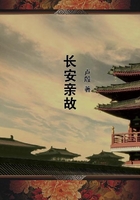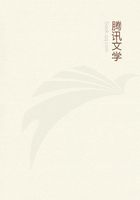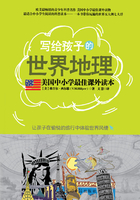But I say, that the law of nature remains, whether the rational being is the cause of the effects in the sensuous world from reason, that is, through freedom, or whether it does not determine them on grounds of reason. For, if the former is the case, the action is performed according to maxims, the effect of which as appearance is always conformable to constant laws; if the latter is the case, and the action not performed on principles of reason, it is subjected to the empirical laws of the sensibility, and in both cases the effects are connected according to constant laws; more than this we do not require or know concerning natural necessity. But in the former case reason is the cause of these laws of nature, and therefore free; in the latter the effects follow according to mere natural laws of sensibility, because reason does not influence it; but reason itself is not determined on that account by the sensibility, and is therefore free in this case too. Freedom is therefore no hindrance to natural law in appearance, neither does this law abrogate the freedom of the practical use of reason, which is connected with things in themselves, as determining grounds. Thus practical freedom, viz., the freedom in which reason possesses causality according to objectively determining grounds, is rescued and yet natural necessity is not in the least curtailed with regard to the very same effects, as appearances. The same remarks will serve to explain what we had to say concerning transcendental freedom and its compatibility with natural necessity (in the same subject, but not taken in the same reference). For, as to this, every beginning of the action of a being from objective causes regarded as determining grounds, is always a first start, though the same action is in the series of appearances only a subordinate start, which must be preceded by a state of the cause, which determines it, and is itself determined in the same manner by another immediately preceding. Thus we are able, in rational beings, or in beings generally, so far as their causality is determined in them as things in themselves, to imagine a faculty of beginning from itself a series of states, without falling into contradiction with the laws of nature. For the relation of the action to objective grounds of reason is not a time-relation; in this case that which determines the causality does not precede in time the action, because such determining grounds represent not a reference to objects of sense, e.g., to causes in the appearances, but to determining causes, as things in themselves, which do not rank under conditions of time. And in this way the action, with regard to the causality of reason, can be considered as a first start in respect to the series of appearances, and yet also as a merely subordinate beginning. We may therefore without contradiction consider it in the former aspect as free, but in the latter (in so far as it is merely appearance) as subject to natural necessity. As to the fourth Antinomy, it is solved in the same way as the conflict of reason with itself in the third. For, provided the cause in the appearance is distinguished from the cause of the appearance (so far as it can be thought as a thing in itself), both propositions are perfectly reconcilable: the one, that there is nowhere in the sensuous world a cause (according to similar laws of causality), whose existence is absolutely necessary; the other, that this world is nevertheless connected with a Necessary Being as its cause (but of another kind and according to another law). The incompatibility of these propositions entirely rests upon the mistake of extending what is valid merely of appearances to things in themselves, and in general confusing both in one concept. Sect. 54. This then is the proposition and this the solution of the whole antinomy, in which reason finds itself involved in the application of its principles to the sensible world. The former alone (the mere proposition) would be a considerable service in the cause of our knowledge of human reason, even though the solution might fail to fully satisfy the reader, who has here to combat a natural illusion, which has been but recently exposed to him, and which he had hitherto always regarded as genuine. For one result at least is unavoidable. As it is quite impossible to prevent this conflict of reason with itself-so long as the objects of the sensible world are taken for things in themselves, and not for mere appearances, which they are in fact-the reader is thereby compelled to examine over again the deduction of all our a priori cognition and the proof which I have given of my deduction in order to come to a decision on the question. This is all I require at present; for when in this occupation he shall have thought himself deep enough into the nature of pure reason, those concepts by which alone the solution of the conflict of reason is possible, will become sufficiently familiar to him. Without this preparation I cannot expect an unreserved assent even from the most attentive reader. III. The Theological Idea. 34 Sect. 55. The third transcendental Idea, which affords matter for the most important, but, if pursued only speculatively, transcendent and thereby dialectical use of reason, is the ideal of pure reason. Reason in this case does not, as with the psychological and the cosmological Ideas, begin from experience, and err by exaggerating its grounds, in striving to attain, if possible, the absolute completeness of their series. It rather totally breaks with experience, and from mere concepts of what constitutes the absolute completeness of a thing in general, consequently by means of the idea of a most perfect primal Being, it proceeds to determine the possibility and therefore the actuality of all other things. And so the mere presupposition of a Being, who is conceived not in the series of experience, yet for the purposes of experience-for the sake of comprehending its connection, order, and unity -i.e., the idea [the notion of it], is more easily distinguished from the concept of the understanding here, than in the former cases. Hence we can easily expose the dialectical illusion which arises from our making the subjective conditions of our thinking objective conditions of objects themselves, and an hypothesis necessary for the satisfaction of our reason, a dogma. As the observations of the Critique on the pretensions of transcendental theology are intelligible, clear, and decisive, I have nothing more to add on the subject. General Remark on the Transcendental Ideas. Sect. 56. The objects, which are given us by experience, are in many respects incomprehensible, and many questions, to which the law of nature leads us, when carried beyond a certain point (though quite conformably to the laws of nature), admit of no answer; as for example the question: why substances attract one another? But if we entirely quit nature, or in pursuing its combinations, exceed all possible experience, and so enter the realm of mere ideas, we cannot then say that the object is incomprehensible, and that the nature of things proposes to us insoluble problems. For we are not then concerned with nature or in general with given objects, but with concepts, which have their origin merely in our reason, and with mere creations of thought; and all the problems that arise from our notions of them must be solved, because of course reason can and must give a full account of its own procedure. 35 As the psychological, cosmological, and theological Ideas are nothing but pure concepts of reason, which cannot be given in any experience, the questions which reason asks us about them are put to us not by the objects, but by mere maxims of our reason for the sake of its own satisfaction. They must all be capable of satisfactory answers, which is done by showing that they are principles which bring our use of the understanding into thorough agreement, completeness, and synthetical unity, and that they so far hold good of experience only, but of experience as a whole. Although an absolute whole of experience is impossible, the idea of a whole of cognition according to principles must impart to our knowledge a peculiar kind of unity, that of a system, without which it is nothing but piecework, and cannot be used for proving the existence of a highest purpose (which can only be the general system of all purposes), I do not here refer only to the practical, but also to the highest purpose of the speculative use of reason. The transcendental Ideas therefore express the peculiar application of reason as a principle of systematic unity in the use of the understanding.
同类推荐
热门推荐
写给孩子的世界地理
西尔耶《写给孩子的世界地理》像是一本“历险”之作。在本书中,作者就像是一位经验颇丰、风趣幽默的环球导游,边走边以优美、富有童趣的语言给孩子们讲解各地的风土人情、山川河流。在作者笔下原本枯燥乏味的地理常识变得鲜活生动、兴味盎然。读完这本书,如同跟作者进行了一次轻松愉悦的环球之旅。追妻无门:女boss不好惹
青涩蜕变,如今她是能独当一面的女boss,爱了冷泽聿七年,也同样花了七年时间去忘记他。以为是陌路,他突然向他表白,扬言要娶她,她只当他是脑子抽风,他的殷勤她也全都无视。他帮她查她父母的死因,赶走身边情敌,解释当初拒绝她的告别,和故意对她冷漠都是无奈之举。突然爆出她父母的死居然和冷家有丝毫联系,还莫名跳出个公爵未婚夫,扬言要与她履行婚约。峰回路转,破镜还能重圆吗? PS:我又开新文了,每逢假期必书荒,新文《有你的世界遇到爱》,喜欢我的文的朋友可以来看看,这是重生类现言,对这个题材感兴趣的一定要收藏起来。BOSS非要我以身相许
(大宠+虐渣爽文)苏晨熙做梦都没料到,在路上意外救了个男人,竟然是曲城号称冷面阎王的顾夜霆!外界传言顾夜霆冷傲嗜血,生人勿近,可是第一次见面为什么对她死缠烂打?婚前,她见到他心底发寒,婚后,他宠她到闻风丧胆!“霆少,白莲花妹妹和渣男在一起。”“通知记者抓奸!”“霆少,继母的花瓶险些砸了我的头。”“地上碎片让她舔舐干净!”“霆少,新婚纪念日庆祝一下!比如……坐实婚前协议,离个婚什么的?”语音刚落,冷气席卷而来,她被抱得脱离地面。二三十岁要懂的经济学诡计
二三十岁前,你不懂经济学诡计,或许是觉得没有必要;二三十岁时,你不懂经济学诡计,小心你比别人在成功路上慢几步;二三十岁后,如果你还不能掌握经济学诡计,你便没有理由哀叹自己为什么不成功了……从现在开始,和我们一起解读经济学的智慧诡计,牢牢握住“三十而立,四十不惑”智慧资本吧!

